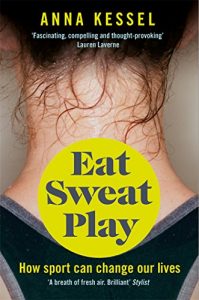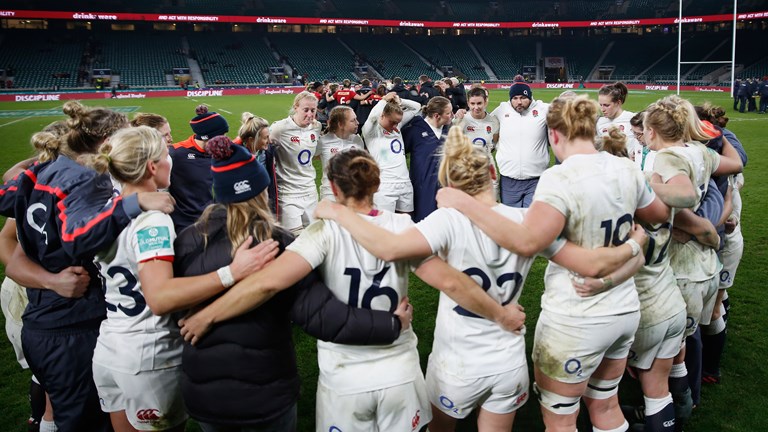You had me at ‘How to bunk a PE lesson’ – Eat Sweat Play by Anna Kessel
A review of Eat Sweat Play: How sport can change our lives by Anna Kessel, published by Pan Macmillan.
 The first chapter of Eat, Sweat, Play had me hooked, because I too was an expert at playing hooky. Around the same time as puberty hit (which for me was at 10) I started to think up creative ways in which I could skive netball, and hockey, and swimming, and cross country. To start with, being the only girl in the class who was ‘on’ helped, but after a while they cottoned on. The fact I was unusually young to start my periods was one thing, the fact I seemed to have a weekly rather than a monthly cycle was somewhat more than unusual. I moved on to vaguely convincing limps (sprained ankle Miss) then to migraines (Miss, the lights in the gym are so bright Miss) which gave me the added bonus of wearing sunglasses, before stealing my sister’s inhaler and settling on ‘I can’t run Miss I’ve got asthma’.
The first chapter of Eat, Sweat, Play had me hooked, because I too was an expert at playing hooky. Around the same time as puberty hit (which for me was at 10) I started to think up creative ways in which I could skive netball, and hockey, and swimming, and cross country. To start with, being the only girl in the class who was ‘on’ helped, but after a while they cottoned on. The fact I was unusually young to start my periods was one thing, the fact I seemed to have a weekly rather than a monthly cycle was somewhat more than unusual. I moved on to vaguely convincing limps (sprained ankle Miss) then to migraines (Miss, the lights in the gym are so bright Miss) which gave me the added bonus of wearing sunglasses, before stealing my sister’s inhaler and settling on ‘I can’t run Miss I’ve got asthma’.
I was terrible at school sport. I hated school sport.
I stopped doing school sport.
So, it turns out did Anna Kessel, sports writer for the Guardian and the Observer and author of the new book Eat, Sweat, Play. Like me, she hated anything to do with PE at school, has rubbish hand-eye coordination and got good at bunking off. Also, like me, she found, a bit later on in life, that there is a weird joy to be found in moving one’s body, in pushing yourself, in engaging in the thing you thought you hated. I run (slowly and badly) and it hurts but I love it. I sort of wish I’d listened when they talked about pacing and proper breathing before sports day, but if any of you tell Miss Hunter that I’ll kill you.
________________________________________________________________________________________________
The book begins by pointing out all of the contradictions to be found surrounding women and sport. Most women wouldn’t describe themselves as sports fans, and yet they may get excited when a big tournament comes around. Like Anna, I know more than a few women who would be horrified to be described as sporty, yet who have more than one 10km under their belts and play netball every week. Even those women who adore sport, are told it would be better if they didn’t. They are told they don’t understand it (offside rule with shopping bags anyone?) or that they’re rubbish at it, or that it’s just not done.
Female sports stars are often described looks first, achievements second which has surely never-happened-to-any-footballer-ever. The results of female exercise and sport are often celebrated – has ever an ab been so worshipped as that of Jessica Ennis Hill – but when she’s actually doing the sport? Not always. When female sports stars are competitive, when they’re driven, and focussed, powerful and winning, when they’re displaying traits that might be (shhhh) a bit masculine, are they celebrated then? The answer, or at least a step towards the answer, might be in this book.
Eat, Sweat, Play did indeed have me at chapter 1 ‘How to bunk a PE lesson’ but the author also had me at chapter 2 ‘Sweating is so hot right now’ where she talks about female body image, the sexualised imagery we subjected to, how sport can (in the moment) liberate you from those thoughts, and how to steal back the phrase ‘like a girl’. Want to know what ‘throwing like a girl’ is? Just read the story of Mo’ne Davis, a 13 year old American girl who can throw a ball at a speed of 70mph! I’ve had cars that struggled to hit 70mph but, there’s a girl that can do it, and thankfully some of the boys near her are enlightened enough to want to be her when they grow up.
She moves on to talk about sport and taboos, and yes, you guessed it, periods. I’d never really sat down to think about how a woman’s cycle might affect her elite sporting ability and insanely it seems, neither have most coaches. The stories from sportswomen who’ve had to fight and push to get trainers to understand their needs and the woeful lack of research into women’s bodies and sport astounded me. Something I was equally not aware of (not being a person with children) is the overwhelming impact of pregnancy and childcare on women’s sport/exercise. Now obviously if I’d sat down and thought about it I’d have realised that it’s not that easy to ‘nip out for a run’ when you’re breastfeeding but the examples of the way women, when sometimes at their most vulnerable, are excluded from being able to do any physical exercise horrified me. In amongst it there are positive examples of exercise classes run by women where they’re encouraged to take their children, or running groups where everyone has a buggy, but these are few and far between.
Anna also talks about women on the other side of Sport. The female sports journalists mistaken for tea ladies, the professionals in football who aren’t taken seriously. The shocking way Delia Smith was assumed drunk when showing a bit of passion over the mic when Norwich City FC (the team she has been the co-majority shareholder of for years) was losing to Manchester City. You can’t help but think that a man in her position would have been praised for requesting a 12th man instead of parodied.

Her final chapter is called ‘Women’s sport: changing the game’ and maybe that change is happening. Our UK women’s cricket team and women’s rugby team are both ranked second in the world and for all the negative press around the coaching, the Lionesses have thankfully received more coverage this year for their incredible performances. The author also talks about Ronda Rousey in this section, a divisive character perhaps, but one who you cannot deny is making a change in women’s sport. From her Olympic medal in 2008 to her triumphant UFC career, she is making waves and proving women can be as tough (or tougher) than the men.
In the introduction to the book Anna Kessel says ‘It’s time for women the world over to reconnect with our bodies. To reclaim them from a life of obsessing about thig gaps and bingo wings. To remember that our bodies are there to have fun with, to enjoy.’
Whether your idea of reconnection is a kick about in the park, a run, or a fiercely competitive game of squash I would urge you to try a bit of that reclamation. And if that all seems a bit much, maybe as a warm-up you could read the book.

